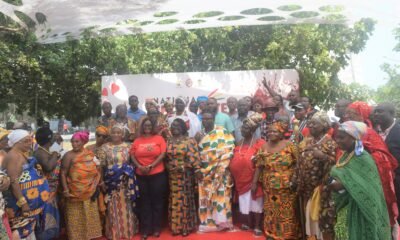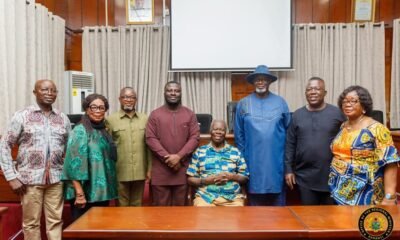News
IBEC-2025: RMU Ag. VC calls for innovative, inclusive strategies to accelerate Blue Economy growth
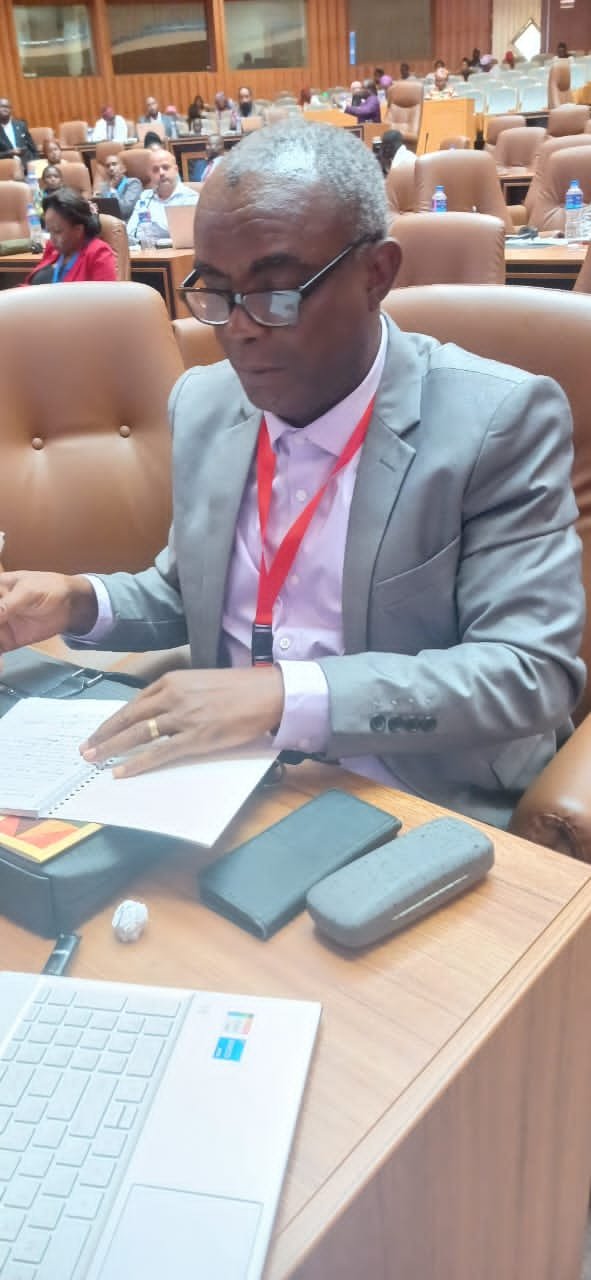
The Acting Vice Chancellor of the Regional Maritime University (RMU), Dr. Jethro W. Brooks Jr., has called for broader engagement among stakeholders within the sub-region to fully harness the potential of the blue economy.
Speaking at the opening ceremony of the second International Blue Economy Conference (IBEC-2025) currently underway in the Republic of The Gambia, he emphasised the need for industry players to be innovative and collaborate effectively to capitalise on opportunities within the ocean.
The three-day conference, which began on Wednesday, February 19, and is scheduled to conclude today, Friday, February 21, has brought together over 200 international stakeholders to exchange ideas on promoting the blue economy and fostering development across the continent by tapping into industry prospects.
The conference is being held under the auspices of the Ministry of Transport, Works, and Infrastructure of The Gambia, in collaboration with RMU in Accra and the Dar es Salaam Maritime Institute (DMI) in Tanzania.
Under the theme “Harnessing the Blue Economy: Leveraging for Innovative and Sustainable Development,” the conference has attracted high-profile delegates from the host country, The Gambia, as well as participants from Tanzania, Liberia, Sierra Leone, Nigeria, Ghana and other nations.
Among the dignitaries present were the Vice President of The Gambia, Muhammad B.S. Jallow, who officially opened the three-day event, the Gambian Minister for Transport, Works and Infrastructure, Mr. Ebrima Sillah, as well as several other Ministers of State.
In his remarks, the Ag. Vice Chancellor of RMU, Dr. Brooks Jr., stated that the blue economy focuses on leveraging oceanic resources to drive economic development while maintaining environmental sustainability.
“Our vision to utilise ocean resources for economic development in the sub-region can only be realized through innovation, collaboration and a commitment to sustainability,” he said.
While emphasising the importance of development through the blue economy, he also stressed the need for environmental sustainability.
“We must ensure that our development does not come at the expense of the environment. Therefore, we need to engage in practices that protect our water bodies, climate and the entire environment for future generations,” he added.
Dr. Brooks highlighted the critical role that RMU and other educational institutions must play in research and training for a sustainable future.
He also emphasised the importance of leveraging technology and innovation while prioritising the wellbeing of the ocean.
“A strong blue economy must ensure conservation, equity and inclusivity. It is vital to adopt a long-term approach that ensures the blue economy we develop today leaves a lasting legacy for tomorrow,” he stated.
“Let us come together to harness the potential of the blue economy for the benefit of the ocean, the people, and the climate,” he urged.
Dr. Brooks commended the organisers and sponsors for their efforts and expressed optimism for a brighter future with a focus on the blue economy.
Key presentations at the conference included topics such as the Blue Justice Approach to Blue Economy Policy Development and Implementation to Safeguard Small-Scale Fishers in Africa, Digital Transformation of the Blue Economy, Food Safety Concerns: A Priority in the Blue Economy, Aquaculture Innovation: Sustainable Practices for the Future of Seafood and Livelihoods, and Ocean Governance: Policy for Sustainable Blue Economy Development.
Additional topics included Climate Change Adaptation and Mitigation: Legal Instruments of Climate Change on Marine Environments and Coastal Communities, Ensuring Marine Safety and Security, and Sustainable Fisheries Management.
News
Consume Made-in-Ghana chocolates- Madam Abla Dzifa Gomashie
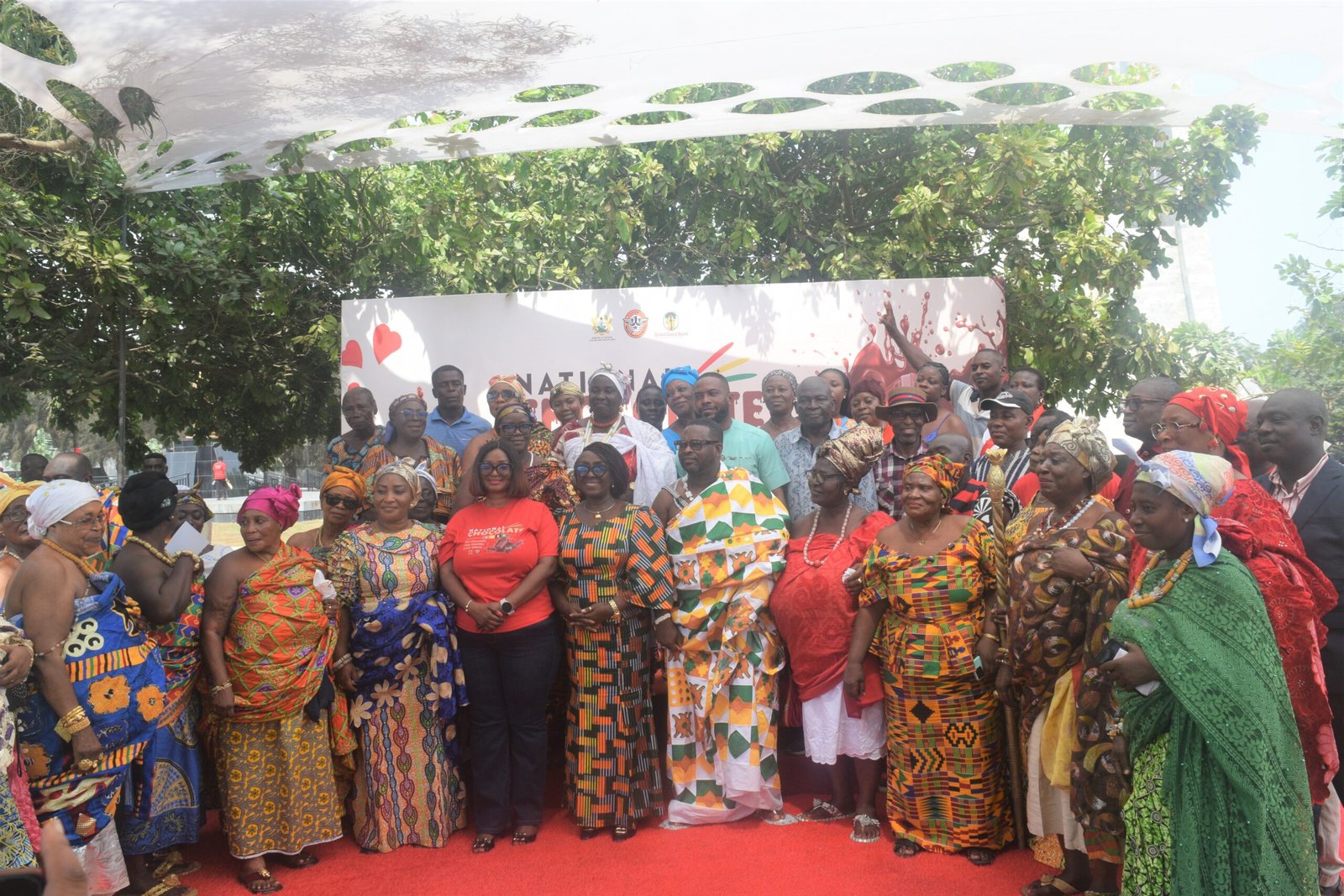
She noted that the programme had helped to reshape the celebration of Valentine’s Day in Ghana by leveraging chocolate as a symbol of love, providing a longer period of engagement, and increased awareness.
Mrs Houadjeto said as local consumption of Ghanaian chocolate was being promoted, it would enhance domestic tourism, social cohesion and create jobs for the youth.


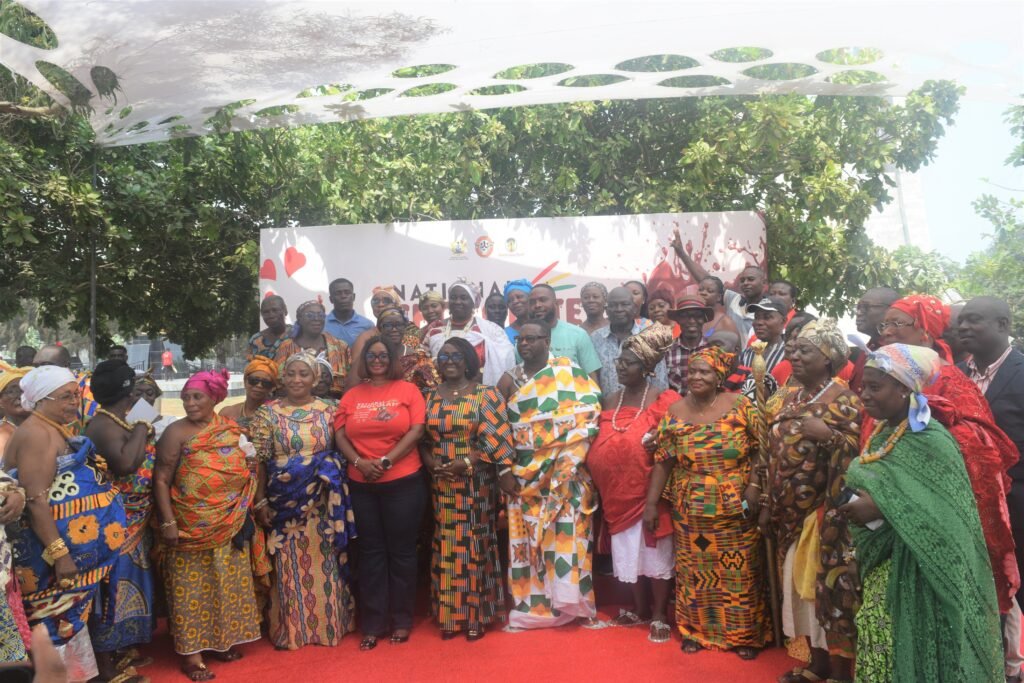
She stated that “cocoa is a stress reliever, helps to reduce blood pressure, improves the blood flow to the brain and boosts brain function, acts as a stimulant, and a natural aphrodisiac.”
She called on stakeholders in the entire value chain to continue to promote the consumption of chocolate and cocoa-based products, adding: “It must be continually nurtured and promoted to attract both national and international attention and participation.”



By Jemima Esinam Kuatsinu
News
MTN Ghana Foundation, Regional Blood Bank organise blood donation exercise
The MTN Ghana Foundation, in partnership with the Eastern Regional Blood Bank, has organised the annual blood donation exercise to mark the Valentine’s Day celebration.
The exercise took place at the Manya Krobo Senior High School in the Lower Manya Krobo Municipality, and was on the theme: ‘Safe blood saves lives.’
The student donors were taken through a health checklist, including age, blood level, and weight to ensure health safety before donation, and after which they were provided with milk, milo, and other foods to replenish their blood.
Mr Ransford Gyan, the MTN Ghana Sales Manager for Eastern, Volta, and Oti regions, told the Ghana News Agency that the foundation had a target of about 6000 people partaking in the blood donation exercise across the 16 regions.
“Our belief is that we will get the target set this year to assist in easing the country’s blood shortage. Donating blood is a benevolent act of solidarity, why don’t you join the effort and help save lives,” he quizzed.
He said at the initial stage of the blood donation exercise introduced by the MTN Ghana Foundation, it was limited to MTN staff but now opened up to the society.
Ms Philomina Quayson, Eastern Regional Blood Bank Donor Organiser at the Regional Hospital, said, “Blood is an essential commodity in the hospital because it helps patients who have accidents, surgeries, or medical conditions.
So, I encourage individuals to save lives by visiting any government hospitals to donate blood.”
She said persons 17 years and above, who are free from health conditions such as sickle cell and hypertension could donate.
She urged the public to donate blood as it was good and safe.
Master Kingsley Nartey, a student of Manya Krobo Senior High School, said, “Today is my first time to participate in this exercise and I was panicking but after going through the processes, I realised it was not painful and scary.” —GNA




